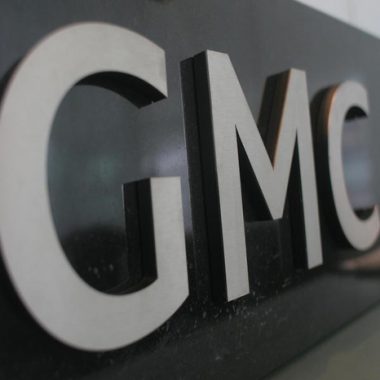The GMC is investigating why black and minority ethnic doctors are less likely to progress through postgraduate medical education than their white counterparts.
The regulator said it was concerned about the ‘differential attainment’ among doctors with ‘certain characteristics’, as well as to what extent this group was more likely to have their revalidation date deferred.
The investigation will inform the GMC’s major review looking at the number of complaints received from employers against doctors with a BME background, which was first announced in April.
The regulator laid out its plans for the review in its terms of reference document, published this month.
It said: ‘As context to this research, it is important to know that we are concerned about, and also investigating, similar patterns of different outcomes related to demographic characteristics, which are observable in other aspects of a doctor’s practice or career.
‘This includes what is referred to as differential attainment, whereby on average doctors with certain characteristics are less likely to progress in postgraduate medical education, and differential rates of deferral for doctors with certain characteristics in revalidation.’
Pulse revealed last year that the gap between white doctors passing the MRCGP final exam and their BME peers was the widest ever recorded.
Analysis of pass rates for the Clinical Skills Assessment part of the GP qualification exam in 2017 found 93.8% of white UK-educated trainee GPs passed the exam at the first attempt last year, compared with 80.1% of UK-educated BME trainees.
Meanwhile, as part of an investigation earlier this year, Professor Aneez Esmail, a Manchester GP and leading expert on racism in the NHS, told Pulse there is a bias against BME students applying to medical school.
The GMC review, which is being led by researchers Roger Kline and Dr Doyin Atewologun, will also look into ‘what constitutes good practice in terms of managing concerns about a doctor’s fitness to practice within employers/designated bodies’.
The latest GMC report looking at the state of medical education and practice found that BME GPs are 20% more likely to face a patient complaint and 30% more likely to be investigated by the GMC.
Susan Goldsmith, the GMC’s chief operating officer, said: ‘We understand and value the diversity within the medical profession and recognise the importance of supporting doctors to serve a diverse population across the UK.
‘We have already made a lot of progress in this very important area, but there is more we can do.’
GMC’s independent review into gross negligence manslaughter
The GMC first announced its review of gross negligence manslaughter in the medical profession at the end of January this year.
Dame Clare Marx was initially appointed chair of the review but after she was appointed incoming chair of the GMC in July, the independent review was taken over by cardiac surgeon Leslie Hamilton.
Its announcement of a review followed a wave of criticism against the GMC from the medical profession for taking a case to the High Court in an attempt to ensure Nigerian-born Dr Hadiza Bawa-Garba remains struck off the register after she was convicted of gross negligence manslaughter.
Dr Bawa-Garba won leave to appeal the decision in March on the basis that her case met the second appeal test, which requires the case to ‘have a real prospect of success’ and ‘raise an important point of principle or practice’ or requires ‘some other compelling reason for the Court of Appeal to hear it’.
The appeal hearing was held at the end of July, with the judges reserving their decision.
Pulse October survey
Take our July 2025 survey to potentially win £1.000 worth of tokens














